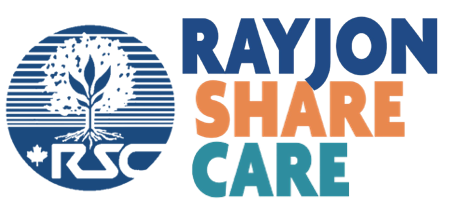Stories
It is an honour and a privilege to share stories about Haitians & Dominicans who are creating real positive change in the world. OUR CAUSES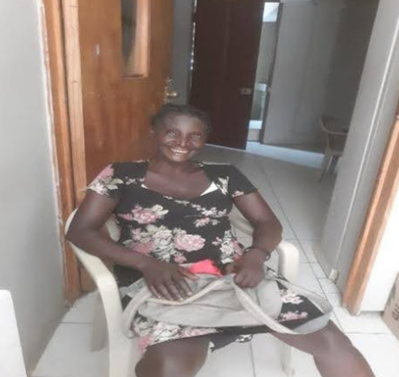
Sidamène, Cap Haitian, Haiti
At the Centre for Nutrition & Education for Women & Children (C-NEW-C) in urban Cap Haitian, 40 women have received microcredit loans and kept their 100% repayment rate going this year!
Loanees attend regular training on financial management, entrepreneurship and saving for the future, gaining knowledge to ensure sound financial decisions that will prepare them for future crises.
Sidamène runs a small business selling essentials like rice, beans and oil near her home. With the support of microcredit loans, she navigated the challenges of COVID-19 and is managing the ongoing social and political unrest in Haiti. She’s keeping her business afloat. The profits earned have enabled her to make some much-needed home repairs. She says, “I’ll keep working hard to achieve even greater things in the future.”
Her radiant smile speaks volumes about the positive changes the Microcredit Program has brought to her life. Lasting changes that are possible, even during a time of crisis in Haiti.

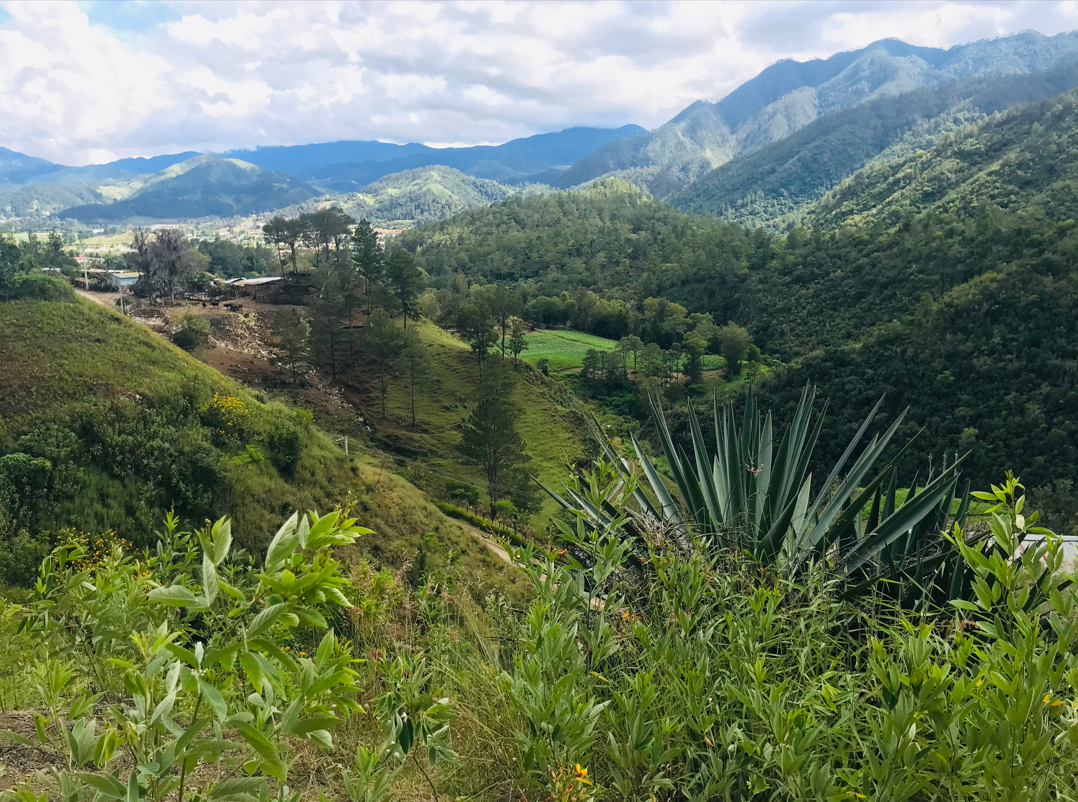
Crismary, Dominican Republic
Crismary Gutierrez is a dynamic young woman with a passion for social justice and supporting those in need in her community. Crismary was born in Santiago into a large family. She was raised by her grandmother and studied business administration in post-secondary. She rose through the ranks in the business department of a Zona Franca (Free Trade Zone), then in the accounting department of a service business, until one day, as she sat in her cubicle, she realized that she could be putting her skills to use to support the people of the Dominican Republic, in a job setting that would bring her more joy.
Along with her partner Scott, they co-founded Puente Desarrollo Internacional. Puente means “bridge” in Spanish. Today Crismary is the country Director, wearing many hats for the organization. Her main role is to make sure that all of Puente’s initiatives come to fruition and also to empower residents to continue with those initiatives. Cris is known for the energy, enthusiasm, and knowledge she shares through “charlas”—workshops or “chats” with community members providing knowledge and skills in leadership, data collection, preventative health care, community collaboration, and more.
Now a flourishing organization that focuses on community data collection to drive locally directed projects, Puente is proving to be an excellent partner for Rayjon. Together we are supporting a variety of amazing community-led development initiatives–from home repair in marginalized neighbourhoods to water projects serving whole communities. [photo: the beautiful Constanza region, home to Puente and Crismary]
Young women like Crismary, with a personal history grounded in the Dominican Republic and the drive to use their skills to lift others to better lives, are the future of sustainable development. We are honoured to partner with such a talented and inspiring Dominican woman.
You can listen to Crismary’s voice in our recent podcast Tapestry 2030 Season 2: Dominican Driving the Vehicle of Change.
“What are the problems in our communities, and how can we resolve them?”
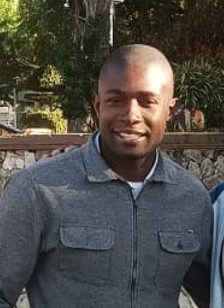
Darío, Dominican Republic
“They didn’t want to recognize me as a Dominican.”—Darío Masiy Bigamos
Darío lives by the idea that if there is something that he has been told he couldn’t do based on his heritage or class, he will prove them wrong.
Raised in the batey (sugar cane plantation) Las Pajas, about 15 km outside of the town of Consuelo, Dominican Republic. His parents, Rosa and Celuis, being both Haitian nationals, faced a number of barriers due to documentation problems, yet still worked hard to ensure opportunities for their children. After his parents separated at age 7, Darío joined his father in Barrio 41 where he had bought a piece of land and Darío could access education more easily through the scholarship program of the Compassion organization.
“Currently, I dedicate myself to social work, As a child I always received a lot and work to be able to help as well as they helped me. My dream is to have my own residential electrical service company, this is a way to help my parents but I would also help with my knowledge to reduce deaths due to bad electrical installations.”
When he finished high school his intention was to enter the military academy. However, just as many children of Haitian descent in the DR routinely are, he was denied entry due to lack of citizenship documentation. It didn’t matter that he had a Dominican birth certificate, the government at that time had changed citizenship laws, removing citizenship from thousands and he was not guaranteed the rights of a citizen. “They didn’t want to recognize me as a Dominican.”
Darío’s process for citizenship documentation lasted three hard years. He worked in the construction sector to fund lawyers for his case and found community support where he could. However, by the time he finally had access to his documents, the age limit to enroll in his dream school had passed by one year. This was just a stumbling block for Darío. He set his sights forward and took technical training courses to become an electrician. With this new designation he landed a job with a local distillery, but didn’t stop there. He is now studying electrical engineering at the UfHec university.
Darío’s heart remains in the community and as a strong young leader he is the president of the neighborhood association of Barrio 41 as well as the overall association of all neighborhood associations of the municipality of Consuelo. He was instrumental in the recent municipal road expansion into Barrio 41 which provides drainage in the community reducing flooding and allowing a possible expansion that will provide running water to the homes, which he continues to advocate for. Darío’s leadership is creating lasting change in the community of Barrio 41.
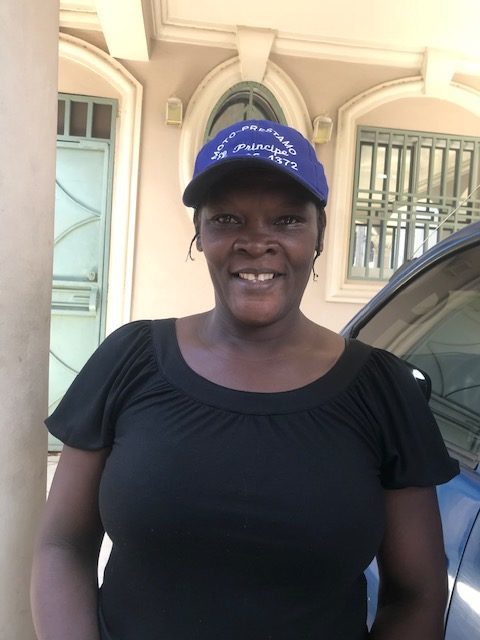
Bénicie, Haiti
Bénicie’s story is amazing. She is a 55 a year-old farmer and entrepreneur. She has one daughter, but has also adopted a foster child in need. Her husband lives in the Dominican Republic, and only occasionally sends money.
Bénicie graduated from Adult Literacy classes, and has been a part of the Microcredit Program since 2004. She is president of the women’s association in her rural village, which organizes training for female entrepreneurs in partnership with Rayjon. Following a training about business development, she got a loan start a business selling fried foods. She has had several business ventures, but this one is her most profitable. She says that the skills she acquired in the trainings have given her capacity to earn more. With her profits she has saved enough money to be able to rent land and also do agriculture. Today she is able to feed and care for her family independently.
Bénicie has become an advisor for the women’s association, and encourages other young women to use business to overcome difficult living conditions in Haiti. Along with some of her neighbours she participates in a “group of mutual solidarity,” pooling their money to support other adults in need to set up small businesses.
(Note: Bénicie also has a beautiful singing voice. You can hear her sing, “Women are Like Reeds,” an anthem about the strength and resilience of Haitian women below)
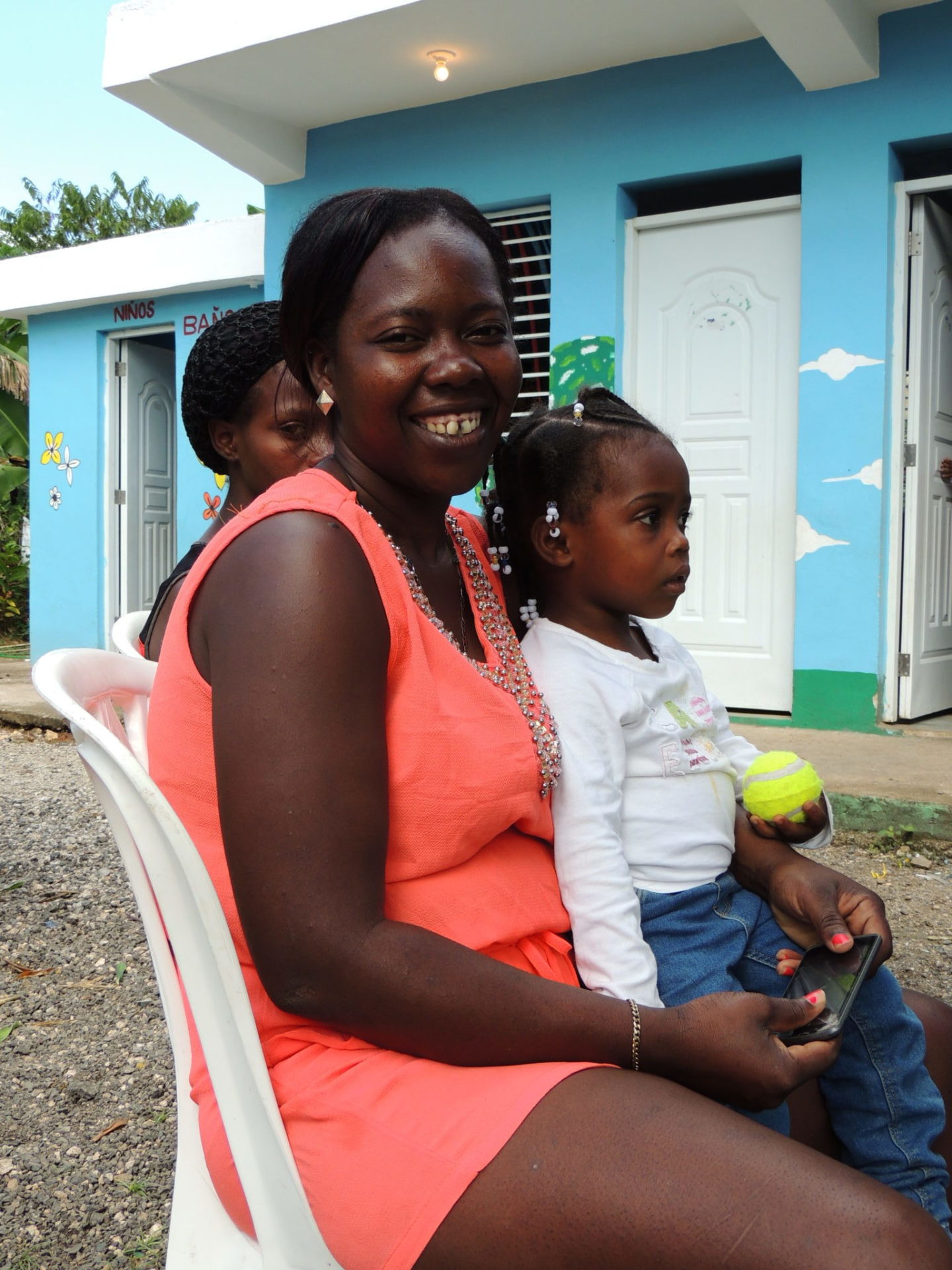
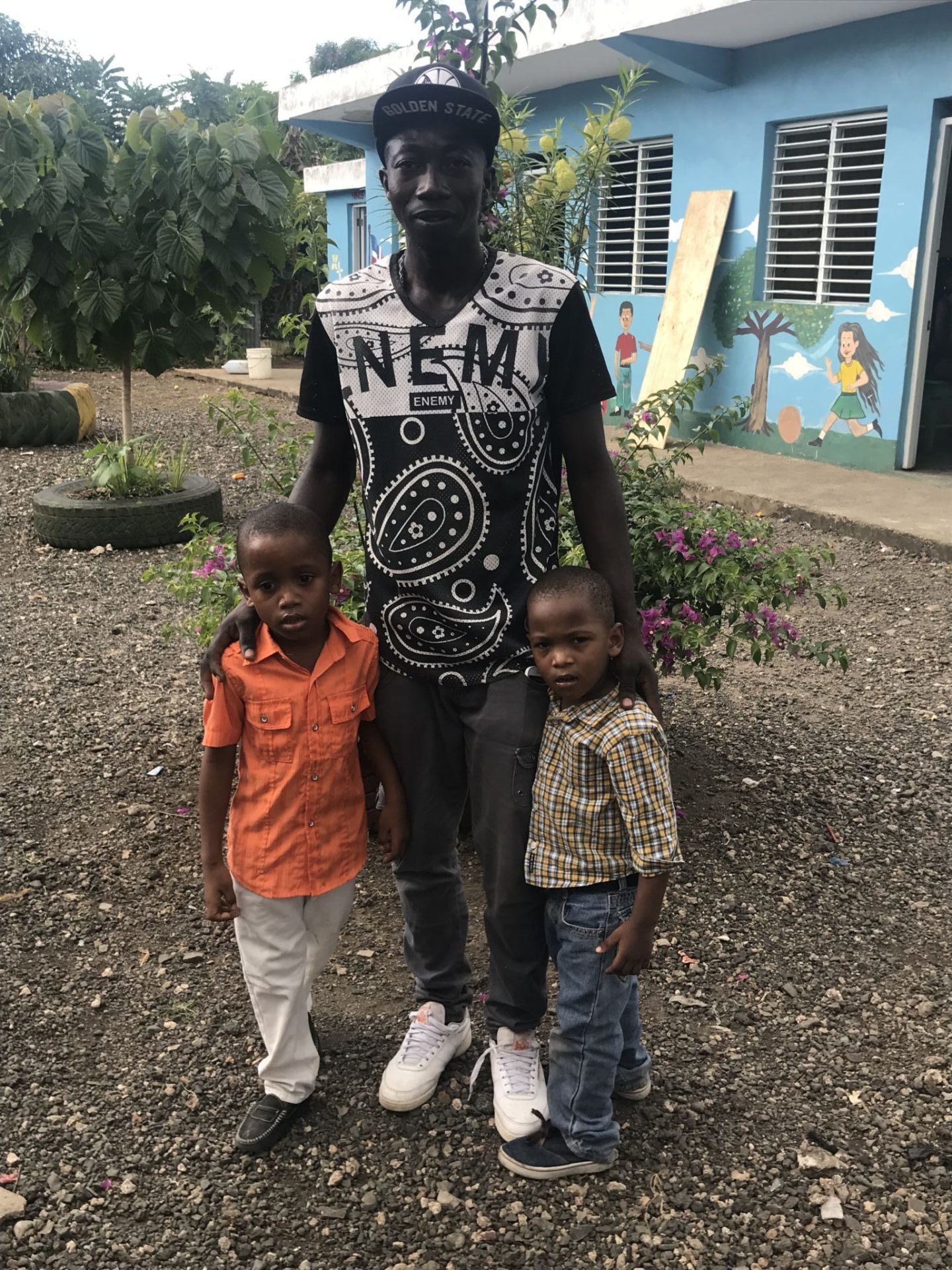
Celiana & Jhonny, Dominican Republic
Documentation is a huge barrier for families in the neighbourhood of Barrio 41, where Rayjon supports a preschool/nutrition centre and programs for women. Many of these families are of Haitian decent, though they have lived in the DR for generations. Their stories are difficult: they face daily discrimination and without proper documentation don’t have access to basic human rights like health care and education.
Rayjon is working in partnership with ASCALA, an organization headed by Brazilian nuns in Consuelo. ASCALA’s highly qualified legal team and have been working diligently to assist families from some of the most impoverished communities who struggle to gain the documents they need to legally live, work, and access vital services.
Celiana, who is the cook at the preschool in Barrio 41, and her brother Jhonny, are two of the more difficult cases being worked on. Celiana was widowed three years ago, leaving her to raise four children on her own. The small stipend she receives for cooking at the preschool is her only means of support. For Celiana to get her paperwork, her mother (Haitian) must first be assisted. This is especially important to Celiana because she does not have legal documentation for her four children. Her eldest is at the top of her class in high school, but won’t be able to apply to university without the paperwork. With each stage of paperwork costing between $200 and $300 USD, the dream of legal status would be impossible without the help provided through the pilot documentation project.
Celiana’s contributions to the preschool go beyond providing delicious and nutritious meals. You’ll also find her scooping up the nearest child with a scraped knee, runny nose, or need for some comfort. This is her neighbourhood and she watches out for all the little ones.
Jhonny is an active volunteer at the Centre, where his two young sons attend preschool. His identification was annulled when it was discovered that it contained false information. A Dominican friend of the family, trying to help, had agreed to declare that she was the mother when Jhonny was born, in the hopes that he could become a Dominican citizen. Now it will be very difficult for Jhonny to reapply for documentation, as his credibility is in question because of this false declaration. ASCALA is first trying to help his biolgoical mother get her documentation. It is not certain if Jhonny will eventually be successful, but we will do what we can to help! Blood tests will be required to confirm the true maternity. Additionally, if Celiana’s file is successful it may add some credibility to Jhonny’s case.
Jhonny has lots of talents, but his dream is to open his own bakery.
